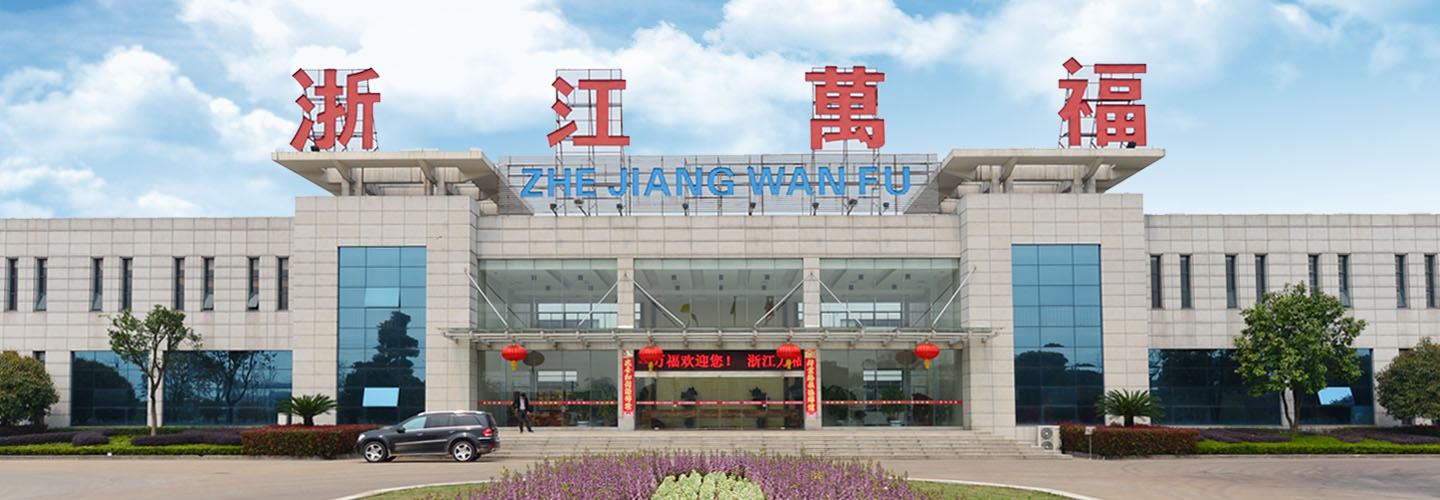Industry NewsAbout Us
Home >Industry NewsForcing knitting equipment industry is highly competitive high-end products
发布:admin 浏览:5338次
To understand the status of the development of European dyeing and finishing of textiles, textile chemicals used to grasp the EU provisions latest trends, to assist Chinese companies looking for European partners, Sept. 6, 2006 -16 days, the China Textile Import and Export Chamber of Commerce, the Secretary-General Wang Yu printing and Dyeing Co., Ltd. Shandong Wei rate, Inner Mongolia Erdos Group Technology Center, Lan Yan Group Co., Ltd., Hunan Zhuzhou cedar Co., Zhucheng Jinghua garment dyeing limited liability company, Shanghai International Trade Co., Ltd. proud of spinning and Jiangsu Yueda textile Group Co., Ltd. consists of Chinese textile delegation visited Germany and Italy. The delegation had meetings with 16 people after the European Association for Textile Finishing(CRIET)、German Textile and Apparel Industry Association (Gesamttextil), the German textile After finishing Association (TVI), the Italian Textile and Apparel Association (SMI-ATI), Como region of Italy Prato regional industry associations and industry associations . Since this system first textile industry delegation to visit China , and thus subject to relevant associations in Germany and Italy attaches great importance to the whole arrangement and accompanied the Chinese delegation business activities. Association introduced the latest requirements of REACh ( Registration, Evaluation and licensing regulations ) , the development status of the textile and garment industry in Germany and Italy , characteristics and distribution of regional industrial European textile chemicals etc. will be introduced . The delegation also visited the Chamber of Textiles Ransha Europe's largest corporate TVU, Italian yarn and fabric dyeing factory Tintoria Pecco, high-grade textile fabrics company Seteria Bianchi srl, Italy Supertintoria Gida dyeing factories and sewage treatment plants , to learn about the production process and plant technological level ; met with professors and professors Lironi Noci Polytechnic University of Milan ; toured Germany Pacifica Stein Institute , Stuttgart textile Technology R & D Center and Tecno Tessile textile research center in Italy ; and visited Italy's largest yarn fabric show -Milano Unica exhibition . Association for the efforts of both China and the EU wide exchange textile industry has played a good role as a bridge .
After finishing Association (TVI), the Italian Textile and Apparel Association (SMI-ATI), Como region of Italy Prato regional industry associations and industry associations . Since this system first textile industry delegation to visit China , and thus subject to relevant associations in Germany and Italy attaches great importance to the whole arrangement and accompanied the Chinese delegation business activities. Association introduced the latest requirements of REACh ( Registration, Evaluation and licensing regulations ) , the development status of the textile and garment industry in Germany and Italy , characteristics and distribution of regional industrial European textile chemicals etc. will be introduced . The delegation also visited the Chamber of Textiles Ransha Europe's largest corporate TVU, Italian yarn and fabric dyeing factory Tintoria Pecco, high-grade textile fabrics company Seteria Bianchi srl, Italy Supertintoria Gida dyeing factories and sewage treatment plants , to learn about the production process and plant technological level ; met with professors and professors Lironi Noci Polytechnic University of Milan ; toured Germany Pacifica Stein Institute , Stuttgart textile Technology R & D Center and Tecno Tessile textile research center in Italy ; and visited Italy's largest yarn fabric show -Milano Unica exhibition . Association for the efforts of both China and the EU wide exchange textile industry has played a good role as a bridge .
First, the European textile and clothing industry and the printing industry conditions
According to the European Association for Textile Finishing , Textile Industry Association, the German and Italian Textile and Apparel Association introduced :
1 , the European textile and clothing production is still stressful , production of high- end clothing is the fundamental business survival.
2005 textile and garment production throughout Europe declined by 4.7% , the number of practitioners in the EU-25 textile and apparel is 230 million, down 7% , price pressures and market conditions deteriorate , the average profit is already low , this year the situation has improved . Since the entire textile process of globalization continues to accelerate, while the European human resource costs are highest in the world , and therefore can only produce the best products in Europe , higher value added products .
2 , the German textile industry by SMEs , with a minimum of labor force characteristics is to achieve maximum value .
Currently a total of 1,100 textile enterprises in Germany , with 100,000 employees and an annual turnover of 23 billion euros ; garment enterprises 500 , 50 000 employees. German textile industry 's main products are silk, cotton , chemical fiber and yarn and fabrics , industrial woven fabrics, textile products and the latest developments , such as multi-functional textiles . German textile industry accounted for the proportion of the total textile has more than 40 %, has occupied the commanding heights of industrial textiles of new technologies.
Germany, dyeing and finishing industry currently has 11,000 employees, 251 companies , the entire printing industry sales in 2005 reached 1.1 billion euros . Coated products produced in Germany more, due to the high technical content, will be the future development direction of Germany.
3 , the Italian textile industry ranks first in the EU , and continues to maintain a leading position.
Italian textile and clothing sales accounted for 25 % of total EU-25 sales to reach 51 billion euros , employing accounting for 1 /3 of the total number of employees in the EU reached 73 million people, more than 60,000 family practitioners enterprises , each plant 's average staff 9 people . Italian textile care industry occupies an important proportion of the entire industry . Textile industrial production accounted for 7 % of the country 's industrial production , employees accounted for 12 % of the entire number of employees , exports accounted for 9% , textile and garment exports accounted for 26 % of the total surplus of industrial products export surplus .
Italian textile dyeing and finishing industry in 2005 generated sales of 4.3 billion euros , 1,291 companies , 33,000 employees, each company employees 25 people , up to the number of employees in the European Union .
Second, to promote communication , cooperation is the common aspiration of the industry between China and the EU
During the visit, the two sides have expressed a desire to further strengthen cooperation and achieve win-win .
1 , China Textile Import and Export Chamber of Commerce program with the signing of the German Textile and Apparel Industry Association, "Intellectual Property Protection Agreement " and the two sides agreed to speed up the web link .
In the meeting with the German Textile and Apparel Industry Association , the CDC Secretary General introduced to each other Chinese textile production , foreign trade and dyeing industry conditions . Pointed out that China is not only producing and exporting countries, while a consumer. This year, China 's GDP has achieved three consecutive 1- June growth of total exports reached $ 795.7 billion , of which the share of world textile exports accounted for the amount of 1/4 , textiles employed nearly 40,000 enterprises , employment of nearly 20 million . Chinese textiles have large market, a complete industrial chain , employing high- quality features , there is also the ability of independent innovation is weak, the ratio of R & D investment Ransha only 0.5 % to 0.25 %, which is 1/10, can be developed for printing and dyeing consumption and pollution also be improved. The EU , especially Germany, among the best in terms of production technology , management also has a great advantage. China is currently producing a great effort to change the mode of growth , adjusting the industrial structure, regional structure and organizational structure. Chamber of Commerce plans to hold meetings introduce Oeko-Tex 100, social responsibility standards and REACh in the second half of this year, the members of corporate propaganda . Hopes to strengthen cooperation with Germany in this regard , China's 11th Five-Year Plan for the EU will be a huge business opportunity. In the international textile and clothing sector in Germany has come to be the depth of cooperation with China , when the transfer of relevant technologies , and hopes the two sides to carry out some substantial projects. We will also German companies to enter the Chinese market with more convenience. 2007 After China by the EU restrictions will expire ten categories of textile products , where to go should be the common interest of both the industry and resolved , as always, I hope the German Association of Chinese textiles to support it.
President of the German Textile and Apparel Industry Association Shu Woze introduced, with the abolition of textile quotas , the Sino-German cooperation in the textile sector will be more extensive , bilateral cooperation is based on a win-win . With the acceleration of global textile process , we will face more problems, but the cooperation so that we can work together to meet this challenge . The association also discuss EU cooperation and development issues , France and Italy this week, the Association will have access to their offices in Shanghai , consultation form larger development companies in China to explore together . Next year the German G8 Summit will be held , the focus is the economy , not politics. One topic of concern is the German government will issue a statement of intellectual property protection . IPR working group proposed by the 5-6 home industry organizations , propose specific measures in the G-8 summit. German Textile and Apparel Industry Association of hope and I will sign the TRIPS Agreement , issued a joint statement expressing the importance of protecting this area ; gradual elimination of piracy ; enforce intellectual property rights protection , such as during the show , you can take joint action to deal with infringement cases , so enterprises have room for complaint, based on evidence .
German two associations jointly agreed :
First, on September 22 this year, the two sides signed the " Intellectual Property Protection Agreement " in Shanghai ;
The second is to carry out site link to create a business platform for cooperation on both sides of the English website to introduce their member companies , and online information exchange and cooperation .
When it comes to collaboration , CDC Secretary General said he hoped the two sides signed an agreement to carry out the relevant cooperation as soon as possible , including: brand agency and seminars.
2 , the European Association for Textile Finishing (CRIET) and the German Association of Textile Finishing (TVI) for inviting me to participate in the dyeing and finishing industry conference will , and to explore the site co- thing.
Chairman CRIET Textile Industry Association Lodiers describes the status quo in Europe , and the REACh regulations will be implemented to the representative of Chinese enterprises in detail. REACh regulation is a comprehensive regulations on chemical products intended for the registration , evaluation , authorization and its implementation will be within the EU and all products exported to the EU impact , will give textile chemicals manufacturers and importers to bring more environmental responsibility , whose responsibilities include protecting the environment for all , including: water, air , exposure of workers to chemicals . Is expected in the next year will have more than 10,000 kinds of chemicals through the REACh regulations require certification . Its purpose is to retain high performance printing and dyeing industry, environmentally friendly products , which will bring increased business costs. REACh legislation by the end of this year in the European Court of Justice for a second discussion , if we agree , will be implemented in mid-2007. Mr. Lodiers also repeatedly reminded Chinese companies concerned about the progress of REACh regulations, as well as the possible impact on Chinese enterprises caused . And invited the Chinese delegation to the General Assembly and dyeing industry held next year , there will be representatives from the EU and Russia and other countries to participate.
Wang Yu , Mr. Secretary-General thanked the Chinese delegation visiting Lodiers of the coordination and arrangements , and hope the two sides can further promote trade cooperation. Raised , I will now and the world association of fifteen countries and regions launched a website link , hope and CRIET and TVI to carry out this cooperation in areas such as training and find opportunities for cooperation.
3 , with the Italian textile and clothing federation (SMI-ATI) on Sino-Italian co- financing feasibility studies conducted textiles and textile enterprises prospects for cooperation between the two countries exchanged views .
September 12 , CDC Secretary General met with Italian textile and clothing federation (SMI-ATI) Chairman Zegna . Zegna again expressed the hope and intention to carry out the textile associations use the two co- financing feasibility studies and market research , and hope that this project can be carried out within this year , making the availability of funds , the project can commence soon .
The two sides also discussed the issues of cooperation exhibition . Zegna Chairman said that the irreversible trend of globalization of textile production , the textile industry for Italy and the EU is still worthy of attention . Italy is expected to further develop the China market , you can contribute to this goal through the exhibition .
In addition , the delegation also heard a professor at Milan Polytechnic About IT applications in the printing industry .
Third, Germany and Italy, textile dyeing and finishing industry characteristics, Chinese and European enterprises gaps
During the visit the delegation visited a number of German and Italian yarn and fabric dyeing and finishing plant , and visited three textile research center. Germany and Italy dyeing enterprise product quality , high efficiency and labor market reflects the characteristics of the fast to impress the delegates , we think :
1 , the Italian companies will design and quality control in the most important position , to keep the leading position .
The gap between product design and consumer markets caused by different Sino-Italian business development ideas. Most of the company's products intended for the field of high-end fashion market , which is generally small scale enterprises , to undertake series , small -volume, time- urgent orders. This is now the majority of Chinese printing companies do not have . We visited the Italian luxury textile fabrics Seteria Bianchi srl is a company employs only 80 people in the company , R & D and technical staff accounted for a third of a total of 25,000 design patterns , updated 1000 per year , and other famous brands as范斯哲high-grade fabrics , orders amount is small, but the unit value of up to 100 euros / square meter.
2 , Italian enterprises in the textile finishing treat a wide gap on the technical concept .
Speaking after finishing technology gap between China and Italy on the conceptual , Shandong Wei , general manager of the United肖英杰introduction, Chinese enterprises pay more attention to the former channel processing and printing , while the Italian textile enterprise applications and the degree of emphasis on finishing the development of technology is much higher than Chinese enterprises . The main sorting through various types of specialized equipment after the flexible use of physical and chemical methods to organize, enhance the value of the products .
3 , the gap between production and management.
From the machine equipment , China and Germany, the gap between technology and equipment is not intended to bilateral textile enterprises . Although many domestic factories and dyeing equipment accounted for a large proportion of imported products , it can be said on the "hardware" part is not inferior to the German and Italian companies , but on the quality of our business and technical personnel , the degree of automation of management , and many other "Software" links with textile companies in Germany and Italy and other European countries there is a great gap. Due to the high cost of local labor , Italian and German textile enterprises generally use automated equipment for the production of alternative human refinement process management and control . As in Germany , Europe's largest yarn dyeing enterprises TVU, has 155 employees , corporate emphasis on staff training , in order to ensure product quality and also has its own product testing room , providing customers report a very high degree of automation throughout the plant , each degree of progress in the program process can be found , its computer color matching system , memory is 80000 staining prescription , convenient laboratory dyeing and dyeing plant , thereby reducing the resulting increase in the use of artificial management errors and costs.
4, the new technology has been widely used in Italy, but in China has not been promoted.
Inner Mongolia Erdos German research center director Wang Min told us at the event , about cashmere, wool production and development of content rich products , more innovative is to visit Italy Supertintoria yarn dyeing plant printing technology . This technology was originally heard in the 4-5 years ago , but has not seen the actual operating processes. And this has been used in Italy for 17 years, technology has been very strict control . The Chamber of Commerce in coordination can complete to see its process, the future for the development of new products the company has considerable reference.
5 , the gap between Italian and dyeing auxiliaries business use is the main cause of the gap between the two value-added products .
After dyeing and finishing the entire textile production chain link is the most flexible part. Italian companies in this part of auxiliaries for use with its own technology accumulated decades of this, there are many Chinese enterprises need to learn.
6 , Germany and Italy developed strong technical force.
In Germany we visited Pacifica Stein Institute , for example, the institute has a number of licensing and permits, such as: providing environmentally friendly textile testing and certification (Oeko-Tex 100), textile UV protection testing and certification, and intelligent textile research, medical research textile technology , textile development for the next 5-10 years the direction of research , the textile sector in the field of communication and marketing research . There are more than 200 employees , with more than 4,000 customers worldwide. Institute of leadership and authority in the field of research and development status of field tests for the development of the textile industry in Europe provides important protection and support.
Fourth, experience and suggestions
1, the Chamber of Commerce and the European Association for close cooperation on the basis of this work is done
The Chinese delegation to visit Europe to European companies and associations a return visit last year 's visit , the European Association of textile finishing , textile finishing after the German Textile and Apparel Association and the Italian federation has given full cooperation , the head of the German Association of even postponed vacation time to arrange the trip of the Chinese delegation . And I would have done a lot of preliminary research, mainly around the textile finishing activities related visits to determine the time and route , and to the other proposed specific business activities arrangement requirements. Due to the close cooperation of both sides to make this event a successful trip .
2 , in cooperation with the European dyeing industry has great potential , should be closely associated with the European Association of exchanges to promote China 's progress in dyeing and finishing industry
Exchanges between China and the EU business representatives and associations have expressed a desire to cooperate with the win-win . Chinese enterprises through the exchange understand the basic situation of the European printing industry , see the gaps , but also compare their advantages , I believe that in the near future, China 's dyeing and finishing industry competition can also be taken to a higher stage , enterprises expressed their willingness to continue exchanges with European counterparts . While Europe is also facing an increasingly competitive situation , needs to find partners has also become part of the European business. European Association for the meet the requirements of enterprises are also actively promoting the good work , in addition to doing the reception outside also proposed that next year will bring the Italian delegation to China looking for partners , which is in line with the wishes of bilateral cooperation.



